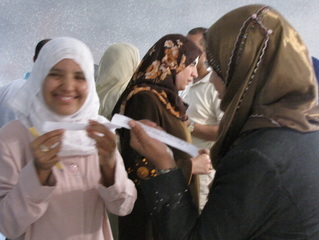TESOL Trainers empowers community members, teachers and students with intercultural tools that support multicultural education. TESOL Trainer's professional development workshops help teachers and students improve intercultural communication.

"Teachers have the tendency to pass their fragilities onto their students. They are not fragile; they are strong and flexible." - Shakti Gattegno.
This comment highlights how, as teachers, we may shy away from certain cultural topics to shield our students. More often than not, this is a hinderance to developing intercultural competence and promoting multicultural education.
It's not a question of 'should I approach this' but 'how should I approach this?' While, as a whole, educators tend to be skilled at teaching about a culture, we are not adept at teaching multi-cultural skills students need to be college and career ready.
Overview: Teachers may consciously or unconsciously teach culture in a way that undervalues one culture for the sake of another. Likewise, some teachers may not quite understand how to teach culture in an empowering way in their classrooms. Certainly, non-native English speakers pose additional challenges.
TESOL Trainer's experiential approach to teacher training helps educators increase their cultural awareness & ability to promote multiculturalism.
Outcome: Educators build a solid foundation in the components of culture and the roles they play in social and educational settings. As participants identify and develop their own intercultural competence, they also examine how to use culture in their contexts in a way that encourages bicultural appreciation, knowledge and skills.

Overview: Many students may not see the value in being multilingual and multicultural. Others may lack the tools to navigate successfully in another cultural environment. This becomes strikingly evident with English Language Learners (ELLs). Following the experiential learning cycle, students become aware of cultural similarities, differences, and the benefits of being bilingual and bicultural.
As students address their own cultural biases, they explore the impact culture has on living in the USA and succeeding in US Academia.
Outcome: After experiencing a language/cultural lessons, students deconstruct the similarities between languages and cultures. As they examine how cultural values and attributes affect how we see the world, they uncover the benefits of being multi-cultural and multi-lingual. By exploring unique cultural attributes and value systems, students gain a sense of pride in be being bilingual and bicultural.

Promoting bilingualism and biculturalism is empowering. Being able to recognize one's own cultural attributes and to develop intercultural skills is a balanced approach to multiculturalism.
Students who come from different cultural backgrounds need to understand their own culture and develop their knowledge and skills in US American Culture; that is the best way to set them up for success in their communities and in education.
Comprehending the KASA of a student's culture increases decreases cultural misunderstandings and increases the ability for the student to assimilate in the new culture.
Click the button below to claim your free ebook and join our mailing list.